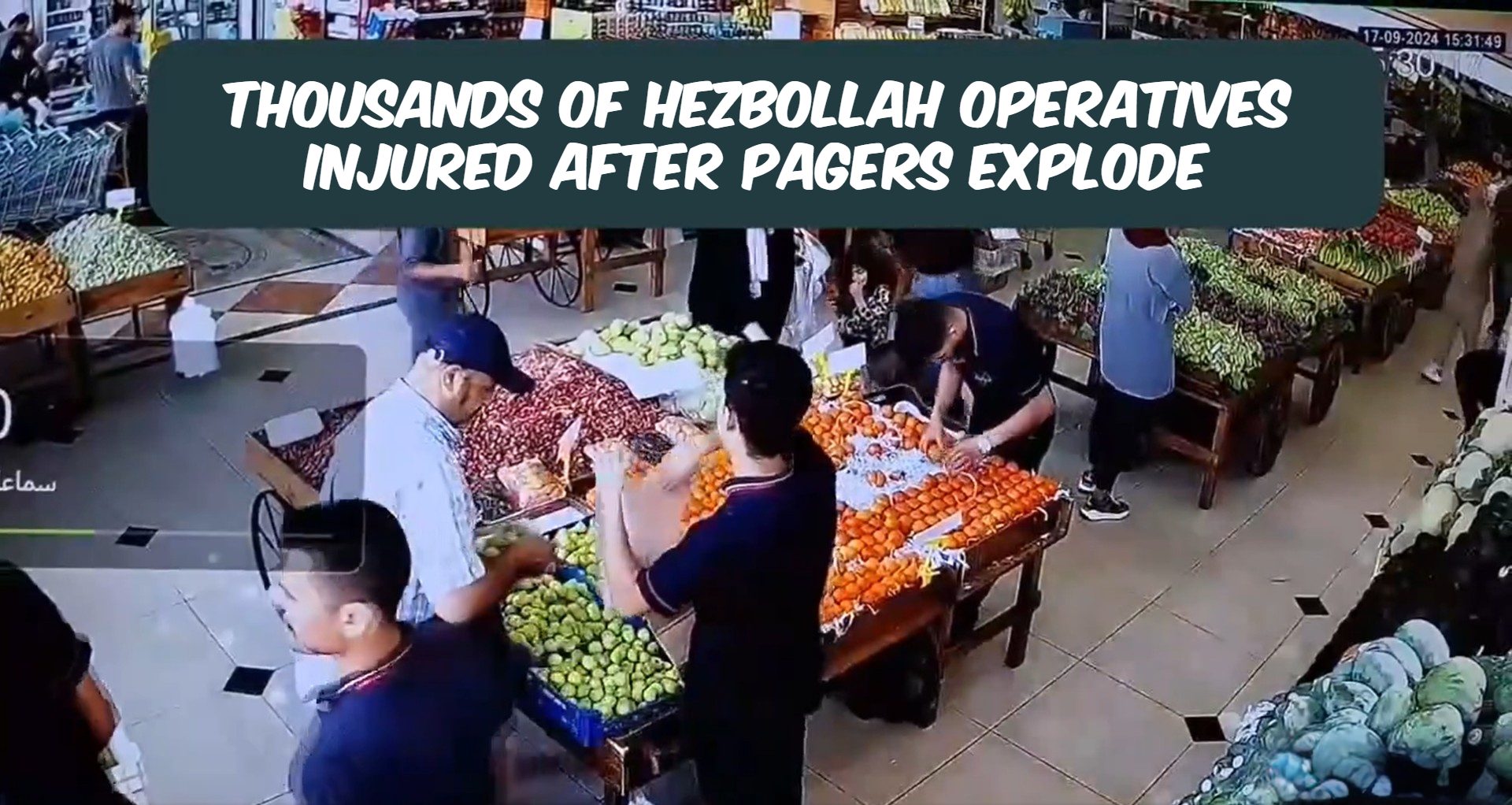A series of synchronized pager explosions have wreaked havoc across Lebanon, resulting in nine deaths and injuring approximately 3,000 people. The blasts, which occurred at 3:45 p.m. local time yesterday, primarily targeted Hezbollah-controlled areas in Lebanon, causing widespread panic and chaos.
Authorities have labeled this as the most significant security breach in Hezbollah’s history, striking a severe blow to the group’s operational capabilities amidst its ongoing conflict with Israel. The devices, reportedly the latest models used by Hezbollah for communication, detonated unexpectedly, leading to speculation about a possible sabotage operation by Israel’s Mossad. Although Hezbollah has not directly accused Mossad, the Lebanese government has pointed fingers at Israel, describing the incident as “criminal Israeli aggression.”
The explosions have exposed vulnerabilities in Hezbollah’s reliance on advanced technology, allegedly supplied by Iran. This setback marks a dramatic failure of the group’s communications infrastructure, embarrassingly so given Hezbollah’s close ties with Tehran. The Iranian ambassador to Lebanon, Mojtaba Amani, was also injured, highlighting the far-reaching impact of the blasts.
The Lebanese government, led by Prime Minister Najib Mikati, has condemned the explosions as a violation of Lebanese sovereignty. During a cabinet meeting, Mikati called the incident a “grave violation” and a “crime by all standards,” urging the international community, including the United Nations, to hold Israel accountable. Lebanon’s Information Minister, Ziad Makary, has echoed these sentiments, emphasizing the need for international intervention to address what Lebanon perceives as ongoing Israeli aggression.
The immediate aftermath saw over 50 ambulances and 300 emergency medical personnel rushing to the affected areas to provide urgent care. The Lebanese Red Cross and other emergency services were overwhelmed by the sheer volume of casualties, necessitating a nationwide call for medical workers to report to hospitals to assist in the crisis.
The international ramifications of this disaster are significant, likely exacerbating tensions between Hezbollah and Israel. This incident not only underscores the volatility in the region but also raises concerns about the potential for further escalation. The explosions have not only crippled Hezbollah’s operational capabilities but also catalyzed a wave of international diplomatic activity as Lebanon seeks to rally support against perceived Israeli actions.
As the dust settles, the global community watches closely, pondering the next moves in this high-stakes geopolitical chess game. This incident serves as a stark reminder of the fragile balance in the region and the ever-present potential for conflict to erupt into broader hostilities.


Leave a Comment